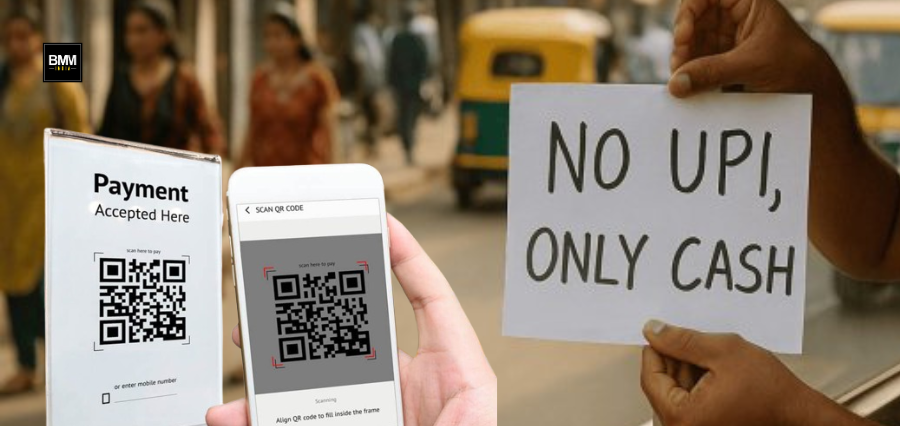Key Highlights :
Bengaluru shopkeepers are rejecting UPI and digital payments in anticipation of retrospective GST liabilities.
More than 14,000 small retailers were sent tax notices following UPI reports of turnovers higher than GST registration thresholds.
Merchants are organizing a three-day protest calling for clarity and GST notice withdrawal.
Key Background :
Bengaluru has been considered an India leader in the digital payment revolution. Growth of UPI after its introduction in 2016 made even small traders, tea sellers, and vegetable vendors part of digital finance. Recent tax enforcement steps have created a fear and confusion wave among these very adopters.
The crackdown started after the state’s Commercial Taxes Department examined UPI transaction data between 2021 and 2025. The aim was to find out businesses that exceeded GST thresholds but were not registered. Over 14,000 vendors in Bengaluru and Mysuru cities, according to this data, were sent notices, questioning their income and GST payments. The figure in doubt ranges from a few thousands of rupees to several lakhs.
These notifications were released without enough warning or precision. The vendors were not aware of the meaning behind the use of UPI receipts to determine their turnover. In the unorganized sector, business and personal transactions are usually commingled in one account, so it is difficult to ascertain taxable income. This caused indiscriminate fear, particularly among vendors who sell exempt items such as fruits, flowers, and unbranded foodstuffs.
Vendors, fearing legal issues or hefty backdated payments, started declining digital payments directly. In this manner, they wish to stay away from leaving a digital proof which may be misquoted as business income. This has resulted in a significant decline in sales by certain vendors—by as much as 30% in a few instances—as urban consumers prefer digital payments.
Small business associations and legal experts have faulted the government for using raw UPI data in contextless manner. The argument is that the GST system was designed to encourage compliance, not punish micro-entrepreneurs through zealous enforcement. The furor has resulted in demands for explicit definition of taxable income and enhanced education for informal sector players.
To tackle the rising discontent, the government of Karnataka initiated an awareness campaign under the name “Know GST”. The officials are conducting workshops and providing helpline services to educate traders on their responsibilities. The Chief Minister has promised the stakeholders that the matter will be taken up with the GST Council.
However, the traders’ group is still not convinced. A three-day agitation, starting July 23, has been called for, asking for a rollback of the notices in its entirety and a rethinking of how digital data is applied to tax assessment. The controversy now raises a larger issue—finding a balance between tax collection and economic inclusion within India’s informal sector.

